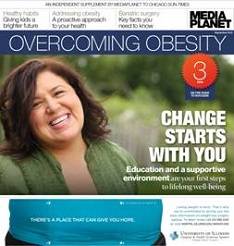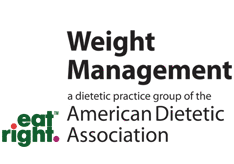Nutritional Mythology
By: Jacqueline Jacques, ND, Naturopathic DoctorCategory: Jacqueline Jacques, ND
Lose Weight Without Dieting!
Newly discovered plant from Brazil acts like âherbal exerciseâ â youâll never need to go to the gym again!
South Americanâs have long known the secret of a traditional plant that helps many a Brazilian beauty maintain her long sleek legs. But now, you can have these same benefits. BrazileanTM is the first product available in the United States that contains this incredible plant that will help you lose inches and get the toned look you want without hours of exercise. For only 49.95 a month â about what you pay for that gym membership â you can finally get results.
Did I get your attention? Are you ready to order?
Welcome to my blog. How many ads have you read that sounded like this? How many times have you thought, âIt sounds too good to be true, but maybeâŠâ My name is Dr Jacqueline Jacques, and this blog is going to focus on what I like to call Nutritional Myth. But donât worry, weâll look at reality too. Ultimately, the goal will be to sort of the crazy world of nutrition, dietary supplements, and obesity â and try to make some sense out of all the hype.
Since we are new to each other, I thought I would take a brief moment to introduce myself. Iâll start with my name: It is not a mistake. My first and last names are almost identical. And despite appearances, I am not French, but I do speak just a little. Thatâs also not a typo in my professional title â itâs really an N not an M. I am a Doctor of Naturopathic Medicine, an âND.â To keep it simple, it is easiest to think of NDs as primary care doctors who specialize in natural therapies. We study everything that âregularâ doctors study plus medical nutrition, herbal/botanical medicine, physical medicine and more. If you really want to know more, you can visit the national organization online at www.naturopathic.org I have also spent the past five years working in the area of nutrition and weight loss surgery.
When WLS Lifestyles suggested this blog to me I knew immediately what I wanted to focus on. I have spent a lot of my career in the dietary supplement industry, and I know it well. I have also spent a lot of my career educating both the public and other health professionals about the dietary supplement industry. The dietary supplement industry makes a lot of money off of weight loss and obesity. What do I mean when I say âa lotâ? According to AC Neilson, in 2005 alone, US consumers spent over 322 million dollars on the category of weight-loss dietary supplements, shakes and bars. This number does not include what was spent on prescription or over-the-counter weight loss drugs, physician-supervised medical weight management, gym memberships, liposuction, weight loss books, or other treatments. By some recent accounts, all included, we are currently spending â out of pocket â over 30 Billion dollars per year* in a national attempt to lose weight.
As a nation, we are still getting fatter. If you are reading this blog, you probably know that already. The dietary supplement industry definitely knows, and offers hundreds of solutions to boost your metabolism, burn fat, control appetite, trim your waistline, and shrink your wallet. Itâs hard to go a day without seeing the ad or infomercial for the amazing new herb from the depths of the Amazon that will melt away the pounds; or finding the email in your inbox declaring that, you too, can lose 30 pounds in 30 days with a single pill; or hearing the announcer on the radio tell you all about the magical elixir you can drink at bedtime to shed pounds while you sleep. They show pictures too. You know what I mean â those before and after shots of pot-bellied men and cottage-cheese-thighed women looking toned and tanned and happy after just a few weeks or months. And despite the disclaimers telling us that Results are Not Typical, we believe them. At least we want to believe them. Tens of thousands of us are willing to take the promise of a miracle at face value and sign up to try the latest cure time and time again.
So the question is: Does any of this stuff work? Is there anything at all that the natural products industry has to offer that may live up to the promises these companies make? Are these things safe? And how is it that they can make these incredible claims? This blog is going to look very carefully at the products, ingredients, pills, potions, creams and more that promise to help you lose weight. We will look at the science, we will look at the hype, and we will try to come to some conclusions about what is real. Since my area of expertise includes nutrition, I will also take a look at many of the latest trends in weight loss books. You can expect that over time we will explore the basics of low-fat and low-carb as well as the more exotic ideas of food combining, blood-type dieting, and master-cleansing. We will also explore cultural diets from the Okinawan Diet to the Mediterranean to the Paleolithic (maybe we had it right when we were hunter-gatherers?).
Finally, I am hoping that some of you readers will have your own suggestions of things that you want to know. The latest herbal pill that you saw on TV, or the new diet your friend said she has already lost 10 pounds on â or maybe you have always wanted to know if itâs true that some foods burn more calories than they contain? I promise that I will do my very best to answer critically, honestly and as entertainingly as possible.
Hereâs a thing I will leave you to think about today: How Can They Say That? When you see ads like the one I created at the start of this blog, donât you wonder how dietary supplement companies can make such amazing claims about their products? If they can say it in an ad, it has to be true, doesnât it? Legally, you are right. The Federal Trade Commission (FTC) has very strict rules and regulations regarding truth in advertising, and issues detailed guidelines for dietary supplement manufacturers. Much of the time, however, advertisers choose to ignore them, hoping they will not get caught. In my experience, it is also true that the more incredible the product claims to be, the more likely the company is to be stretching the truth. In fact, the FTC recognizes that fraudulent advertising of weight loss products is a specific problem. Several years ago, they launched a campaign called âOperation Big Fat Lieâ http://www.ftc.gov/opa/2004/11/bigfatliesweep.shtm to help educate consumers about false weight loss claims. Additionally, as part of these efforts they created two sham web sites that demonstrate common strategies companies use to deceive consumers. You can view these sites, plus more educational material, at http://www.ftc.gov/dietfit/
*Bryant, J., Fat is a 34 Billion Business, Atlanta Business Chronicle (Sept. 24, 2001), citing research by Marketdata Enterprises, Inc.



















